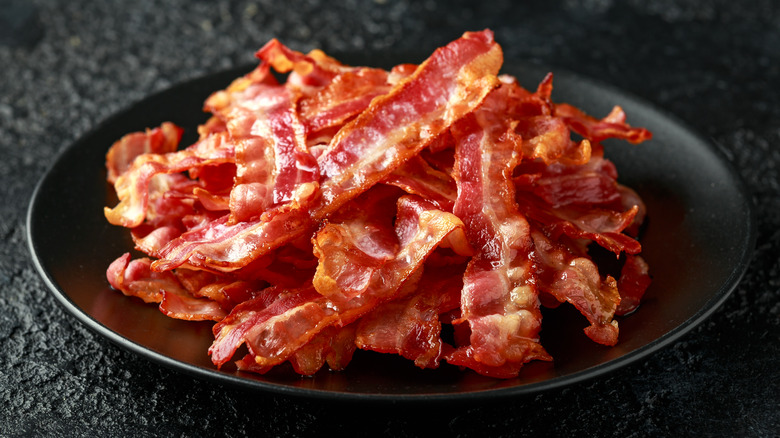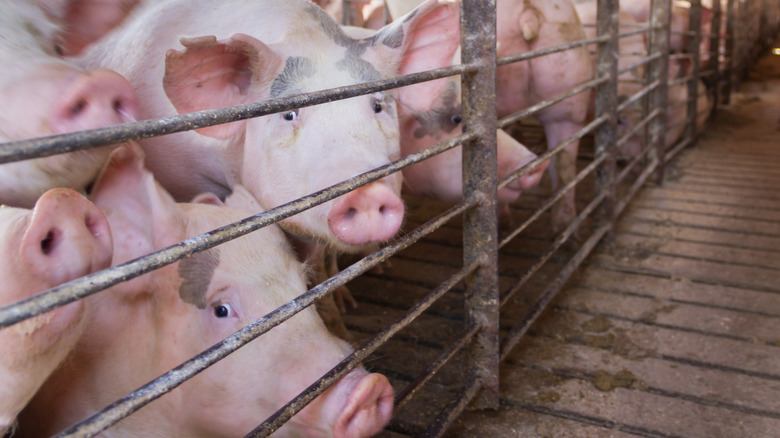It Might Soon Become Harder To Find Bacon In California. Here's Why
If you live in California and enjoy the occasional pork product, you could be in for a shock. This is because a welfare proposition, which California voters overwhelmingly approved in 2018, will officially come into effect in the New Year.
Called the Farm Animal Confinement Proposition (Prop 12), the legislation is an anti-cruelty effort that requires more space than is the current standard for egg-laying chickens, veal calves, and breeding pigs. Egg and veal producers are on track to make the necessary tweaks, but the pork industry is not. In fact, currently, only 4% of hog producers are in compliance. This could cause a major pork shortage in California, and prices on what little is available to go sky-high, the Associated Press reports.
If courts don't rule in favor of the pork industry, or if pork producers fail to fall in line quickly, the vast majority of pork available to California will not be sellable, according to Business Insider.
The pork industry's problem with Prop 12
As with most controversial changes, it all comes down to money for the implementation of Prop 12 in California. In order for pork suppliers to comply with the change, they have to make more room for their hogs. New pens must be at least 24 square feet, which is the size deemed large enough for the hogs to turn around and fully stretch out, when needed. Many farms operate far below that standard, with sows in 14 square-foot crates.
Since most have only so much room, they can't have as many animals on the property, which drives the price of producing pork products way up. In fact, the estimated cost increase per animal is 15%, according to the AP. The news source also notes that a 50% reduction of the pork supply in California would result in a 60% increase in price for the average package of bacon.
Pork producers claim that the state has not yet finalized all of the regulations, however, the California Department of Food and Agriculture says that the size requirements have been public knowledge since before the proposition even passed. The pork and restaurant industries are trying to work out some sort of agreement (by way of lawsuits) to delay the requirements and prevent a potentially devastating pork product shortage. The U.S. Department of Agriculture is even being pinged to pay for the cost of updating the facilities to comply with the new standards.
So Californians who love bacon best find some to freeze and prepare for January. Eggs and toast just aren't the same without a good old side of pork.

